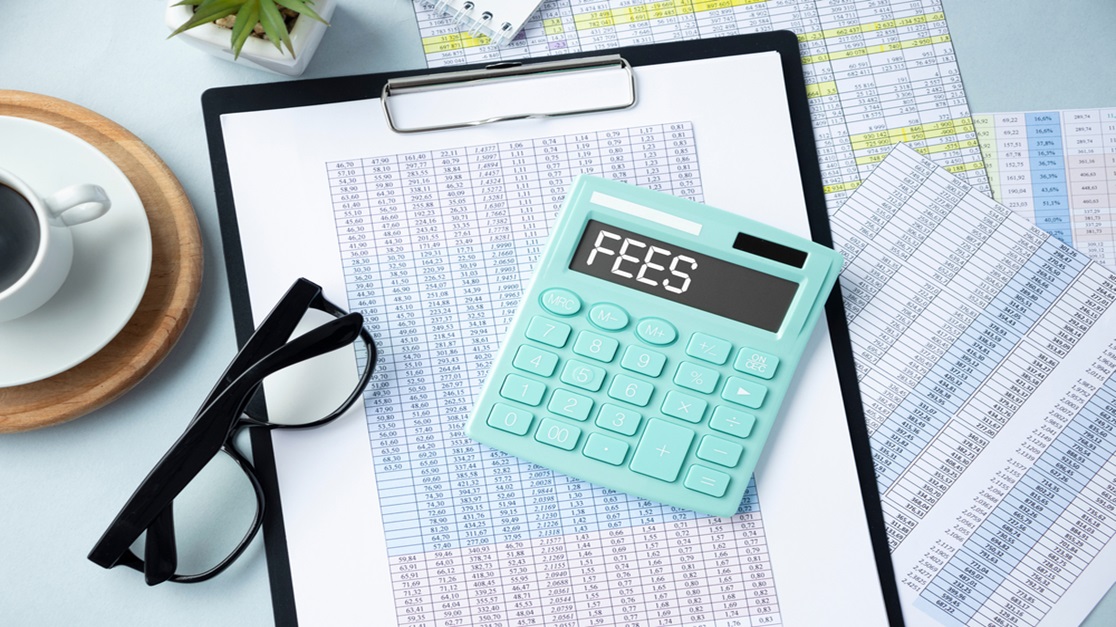A Guide to Recurring Deposit Fees and Charges
July 03, 2025

Whether you are saving for a future goal or building an emergency fund, Recurring Deposits (RDs) offer a convenient way to save money while earning fixed returns. However, life is unpredictable, and there may be times when you need to access your RD funds before the maturity date.
Breaking or prematurely withdrawing funds from an RD can come with certain costs that you should be aware of. In this guide, we will delve into the various recurring deposit account fees and provide strategies and tips on how to manage these fees effectively.
Understanding Recurring Deposit Account Fees
Maintaining an RD account doesn’t incur any charges. However, premature withdrawal of RD has its implications. For example, if you withdraw RD within 3 months, you won’t earn any interest. Also, 1% penalty charge would be applicable on the prevailing interest rate. Also, if your RD account becomes inactive, as in you miss making RD payments multiple times, the bank may close your account.
Strategies for Minimising RD Fees
- Compare Penalty Charges Across Banks: Before opening an RD, compare the RD premature penalty fees of different banks. Ujjivan doesn’t charge premature withdrawal fee for withdrawals made after 6 months from the time of deposit.
- Maintain Regular Deposits: Avoid non-maintenance fees by ensuring you deposit the RD instalment on time each month. Set up a standing instruction or automate your deposits.
- Plan Withdrawals Carefully: Unless faced with an emergency, try to stay invested until maturity to avoid premature withdrawal penalties which can be as high as 1% of the withdrawn amount.
Tips for Effective Cost Management
In addition to minimising RD fees, practicing prudent cost management can help you maximise savings. Here are some suggestions:
- Maintain a Budget: Keep track of your income and expenses to identify areas where you can cut costs and redirect savings towards your RD.
- Automate Savings: Set up automatic transfers from your salary account to your RD to enforce saving discipline and avoid missed instalments.
- Increase Deposit Amount Periodically: As your income grows, consider increasing your monthly RD instalment to boost your savings.
Final Thoughts
Recurring deposits can be a powerful tool for savings and wealth creation, but unchecked fees and charges can hamper your returns. By understanding the different types of recurring deposit account fees, analysing their impact, and implementing strategies to minimise them, you can make the most of your RD investments.
Start small, dream big! Invest in Ujjivan Small Finance Bank’s Recurring Deposit and enjoy higher interest rates! Save for your long- and short-term goals with our RD and live a stress-free financial life. Start investing with just ₹100!
Disclaimer:
The contents herein are only for informational purposes and generic in nature. The content does not amount to an offer, invitation or solicitation of any kind to buy or sell, and are not intended to create any legal rights or obligations. This information is subject to updation, completion, amendment and verification without notice. The contents herein are also subject to other product-specific terms and conditions, as well as any applicable third-party terms and conditions, for which Ujjivan Small Finance Bank assumes no responsibility or liability.
Nothing contained herein is intended to constitute financial, investment, legal, tax, or any other professional advice or opinion. Please obtain professional advice before making investment or any other decisions. Any investment decisions that may be made by the you shall be at your own sole discretion, independent analysis and evaluation of the risks involved. The use of any information set out in this document is entirely at the user’s own risk. Ujjivan Small Finance Bank Limited makes no representation or warranty, express or implied, as to the accuracy and completeness for any information herein. The Bank disclaims any and all liability for any loss or damage (direct, indirect, consequential, or otherwise) incurred by you due to use of or due to investment, product application decisions made by you on the basis of the contents herein. While the information is prepared in good faith from sources deemed reliable (including public sources), the Bank disclaims any liability with respect to accuracy of information or any error or omission or any loss or damage incurred by anyone in reliance on the contents herein, in any manner whatsoever.
To know more about Ujjivan Small Finance Bank Products Visit:"https://www.ujjivansfb.in"
All intellectual property rights, including copyrights, trademarks, and other proprietary rights, pertaining to the content and materials displayed herein, belong
to Ujjivan Small Finance Bank Limited or its licensors. Unauthorised use or misuse of any intellectual property, or other content displayed herein is strictly prohibited and the same is not intended for distribution to, or use by, any person in any jurisdiction where such distribution or use would (by reason of that person’s nationality, residence or otherwise) be contrary to law or registration or would subject Ujjivan Small Finance Bank Limited or its affiliates to any licensing or registration requirements.
FAQs
1. Can I break an RD and transfer the funds to another bank?
Yes, you can break an RD and transfer the funds to another bank if required. However, if you break your RD prematurely, you may lose out on the interest rate or a penalty fee could be levied.
2. Is there a minimum tenure for breaking an RD?
There is a minimum tenure of six months for breaking an RD. However, some banks may have certain restrictions or charges for premature withdrawals within a specified period.
3. Can I open another RD after breaking one prematurely?
Yes, you can open another RD after breaking one prematurely.
4. What are some alternative options for accessing funds without breaking an RD?
Consider exploring overdraft facilities, or emergency funds as alternatives to breaking an RD.
5. Are there any tax implications for breaking an RD before maturity?
Yes, the interest earned on an RD is subject to taxation as per your income tax slab. Premature withdrawal may impact your tax liability.
6. How can I minimise penalty charges when breaking an RD?
Plan your RD withdrawals strategically by timing withdrawals closer to the maturity date.
7. Can I change the RD instalment amount during the tenure?
Banks do not allow changing the RD instalment amount during the tenure.
8. What should I do if breaking an RD hampers my long-term financial goals?
Consult with a financial advisor or banking representative to understand the implications and explore suitable alternatives that align with your goals.
9. How can I find out the fees for my recurring deposit account?
You can find all the latest RD rates here.
Latest Blogs

How Jewellers in India Calculate Gold Price
June 26, 2025
Gold jewellery holds a special place in Indian culture, often bought during festivals and family celebrations.

How to Link Your Mobile Number with Aadhaar Online & Offline Methods)
June 25, 2025
Linking your mobile number with Aadhaar is essential if you want to access Aadhaar-based services like e-KYC and Video KYC for bank accounts, OTP verification, filing taxes, e-Aadhaar downloads, and biometric authentication. Without a registered mobile number, you can't use any online Aadhaar services.

The Importance of Property Insurance When Taking a Home Loan
June 25, 2025
A home loan is a long-term financial commitment often spanning between 10 to 20 years, or even more.

Fixed Deposits vs Sovereign Gold Bonds (SGB): Which Is the Better Investment?
June 24, 2025
In today’s uncertain economic climate, conservative and low-risk investment options continue to dominate the choices of Indian savers.

FD vs SIP: Not a Race, But a Financial Match
June 24, 2025
We often treat money like a race — chasing returns, tracking trends, comparing who’s earning more from what.



